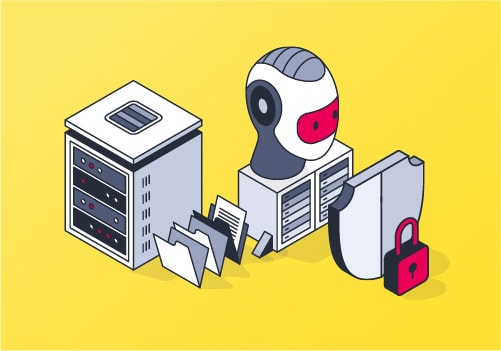AI Compliance: 5 Key Areas You Can’t Ignore
Artificial intelligence (AI) is revolutionizing the way industries operate, making processes more efficient and decisions faster. But with these advancements come new regulatory and ethical challenges. For compliance professionals, staying on top of these issues is critical to avoid legal pitfalls and build trust.
1. Governance & Accountability: Setting the Foundation
Why It Matters:
AI can automate decisions at lightning speed, but without clear governance, this can spiral into unregulated chaos. Effective governance is the backbone of ethical AI use—it defines roles, ensures oversight, and provides a framework for responsible implementation.
What You Should Do:
- Create AI Oversight Structures: Establish an AI steering committee that brings together leaders from compliance, IT, legal, and business units. This team should own the responsibility for setting AI policies, overseeing audits, and ensuring that decisions made by AI systems are ethically and legally sound.
- Set Accountability: Assign individuals to monitor AI decision-making processes, assess risks, and be responsible for AI-related outcomes. Regular internal and third-party audits should be conducted to ensure compliance and detect any areas of concern early.
- Enforce Transparent Decision-Making: AI outputs should be explainable. Your organization should maintain clear documentation of how AI models are trained, how decisions are reached, and who is responsible at every step.
By establishing these structures, you create transparency and a safeguard against unintended consequences, ensuring your AI stays in line with organizational values and legal requirements.
2. Data Privacy & Protection: Safeguarding Sensitive Information
Why It Matters:
AI systems thrive on data, but often the data in question includes sensitive personal information. Missteps here can lead to severe legal consequences under regulations like the GDPR and CCPA, not to mention significant reputational damage.
What You Should Do:
- Comply with Data Protection Laws: Familiarize yourself with both local and international data privacy regulations that govern your industry. Ensure that the data your AI processes is collected and handled within the scope of these laws.
- Data Minimization: Reduce risk by ensuring AI systems only use the data that’s absolutely necessary for their function. This reduces exposure and makes it easier to stay compliant.
- Implement Robust Security Measures: Use advanced encryption and anonymization techniques to protect personal data. Ensure access to sensitive information is restricted using role-based permissions and multi-factor authentication.
Data privacy isn’t just about compliance—it’s about trust. Ensuring that your AI initiatives protect individuals’ data is vital for maintaining customer and stakeholder confidence.
3. Ethics & Bias: Ensuring Fairness in AI Decisions
Why It Matters:
AI has the power to accelerate decision-making, but without careful oversight, it can also perpetuate or even amplify biases. Ethical AI goes beyond technical implementation; it requires constant vigilance to prevent unfair outcomes that could harm your organization or its stakeholders.
What You Should Do:
- Audit Your Data for Bias: Regularly check your AI training data to ensure it’s representative of the diverse populations it will impact. AI models trained on biased data will inevitably produce biased outcomes.
- Use Bias Detection Tools: Leverage software specifically designed to detect and mitigate bias in AI models. These tools can flag potentially discriminatory results before they’re deployed in real-world applications.
- Retrain AI Models Regularly: As data environments change, it’s essential to retrain models to ensure they’re keeping pace with evolving standards of fairness and accuracy.
- Be Transparent: Organizations must be open about how AI systems make decisions. This includes disclosing when AI is being used and offering explainability for decisions, especially in high-stakes areas like hiring, lending, or medical treatment.
Building ethical AI systems requires ongoing monitoring and the flexibility to refine or retrain them to meet fairness standards. Ethical practices are not just compliance obligations—they can be differentiators that set your organization apart.
4. Compliance with AI Regulations: Staying Ahead of a Changing Landscape
Why It Matters:
The regulatory environment around AI is evolving rapidly, with significant developments like the EU’s AI Act set to reshape compliance requirements for high-risk AI applications. Falling behind could mean non-compliance and stiff penalties.
What You Should Do:
- Monitor Regulatory Changes: Stay updated on AI-related regulations in every jurisdiction your company operates in. The EU’s AI Act is expected to introduce strict rules around AI used in healthcare, finance, and other critical industries. Be proactive by anticipating these requirements and integrating them into your AI development cycle.
- Create a Global Compliance Strategy: For organizations with international reach, AI compliance is not a one-size-fits-all approach. Ensure you understand the local regulations in each region where your AI systems operate, and harmonize these requirements to create a streamlined, global compliance strategy.
- Engage with Regulators: Keep communication lines open with relevant regulatory bodies. Participating in public consultations and staying involved in industry associations can give your organization a voice in shaping future AI laws while ensuring you’re ready when changes come into force.
Staying compliant with AI regulations is not just about ticking boxes—it’s about future-proofing your AI initiatives as regulatory landscapes shift and grow more stringent.
5. Risk Management & Human Oversight: The Human Element in AI
Why It Matters:
AI systems can handle vast amounts of data and make decisions faster than any human, but in areas with high-stakes implications—like anti-money laundering (AML), fraud detection, or even whistleblowing—there’s no substitute for human judgment. Human oversight ensures that AI decisions are subject to a final check, catching errors or anomalies that AI might miss.
What You Should Do:
- Integrate Human Oversight: Always have humans in the loop, especially in high-risk applications. Set up systems where AI decisions—particularly those with legal, ethical, or compliance implications—are reviewed by experienced personnel.
- Develop Clear Escalation Protocols: When AI outputs are flagged as high-risk or uncertain, establish a clear process for human intervention to either validate or override AI decisions. This ensures that critical decisions are never left solely to machines.
- Train Your Workforce: Employees need to be trained on how AI systems work, where they excel, and where they might fall short. This helps them understand when to rely on AI and when to step in.
The integration of human oversight is not about slowing down AI processes; it’s about enhancing accuracy and ensuring that high-stakes decisions meet the highest standards of accountability and compliance.
Wrapping It Up: Navigating AI Compliance with Confidence
The key to effective AI compliance is vigilance. Governance, data privacy, ethics, regulatory adherence, and risk management all play critical roles in ensuring your AI systems are both effective and responsible. With AI regulations tightening across regions and industries, organizations that prioritize compliance today will be better positioned to thrive tomorrow.
By focusing on these five core areas, you’ll not only mitigate risk but also create a foundation of trust, transparency, and ethical leadership.

Artificial intelligence (AI) is revolutionizing the way industries operate, making processes more efficient and decisions faster. But with these advancements come new regulatory and ethical challenges. For compliance professionals, staying on top of these issues is critical to avoid legal pitfalls and build trust.





